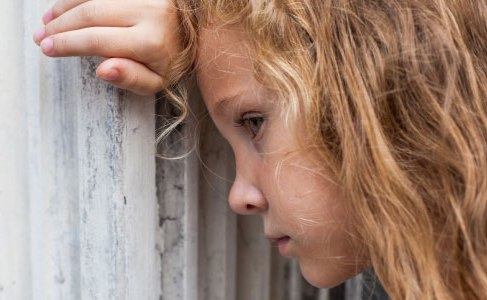Dealing With Childhood Depression
A recent survey report on childhood depression, also known as pediatric depression, showed that over 8% of children between the ages of 3 and 14 suffered from some sort of depression. In children, the symptoms are more exaggerated and children suffering from mental depression show more signs of irritability and self-destructive behaviors as compared to adults facing similar illnesses.
Symptoms of Childhood Depression
Most parents may dismiss the onset of depression as simply a case of their child being introverted and with-drawn. The earliest signs of depression could be a sudden loss in interest for the activities that you know your kid enjoys. This could include activities like sports, painting or playing games with friends. If the child appears withdrawn and shows no interest in the activity, this could be a case of anhedonia; an early symptom for depression.
A more exaggerated form of symptom include extreme negative talk from minor complaints like “I am bad” to as vile as “I want to die”. These symptoms stem from extreme irritability the child faces as a victim of mental depression. Doctors also note that kids in this state may feel unloved, unworthy and generally with low self-esteem. This consequently leads to lower grades from children who may otherwise be scoring high grades.
Treating Childhood Depression
Many times, pediatric depression could be a short-lived affair lasting not more than a week or two. If the kid has helped to cope with the illness and recovered within this short duration of time, medical help may not be required although parents are required to constantly monitor their child for a recurrence of the symptoms.
However, when these symptoms last longer than this, a full medical checkup along with a consultation from a mental health professional is a must. Depression is as bad an illness as any other, and it should not be dismissed as a minor illness that does not need medical help.
There has been a lot of research into the treatment of mental health and childhood depression in recent times and researchers have found out that children who are able confide in the health professional are more treatable than those who do not.
In an article titled “Impact of nurses clothing on anxiety of hospitalized children” published by Dr. Hamidreza Roohafza in the Journal of Clinical Nursing (July 2009 edition), it has been noted that nurses who wear colorful scrubs are generally seen to be more approachable compared to nurses in traditional white clothing. Also reports that anxiety as a psychological parameter delays the therapy process and colorful scrubs clothing helps reduce the anxiety levels in children and thereby quicken the treatment process.
Depression has a wide range of causes starting from nutrient deficiencies to ambient factors like the death of a loved one or anxiety. Diagnosing the cause and initiating the right treatment is extremely critical to the health of child. If your child appears to be suffering from depression, make sure you consult a mental health professional without delay and avoid self-medication at all costs.
